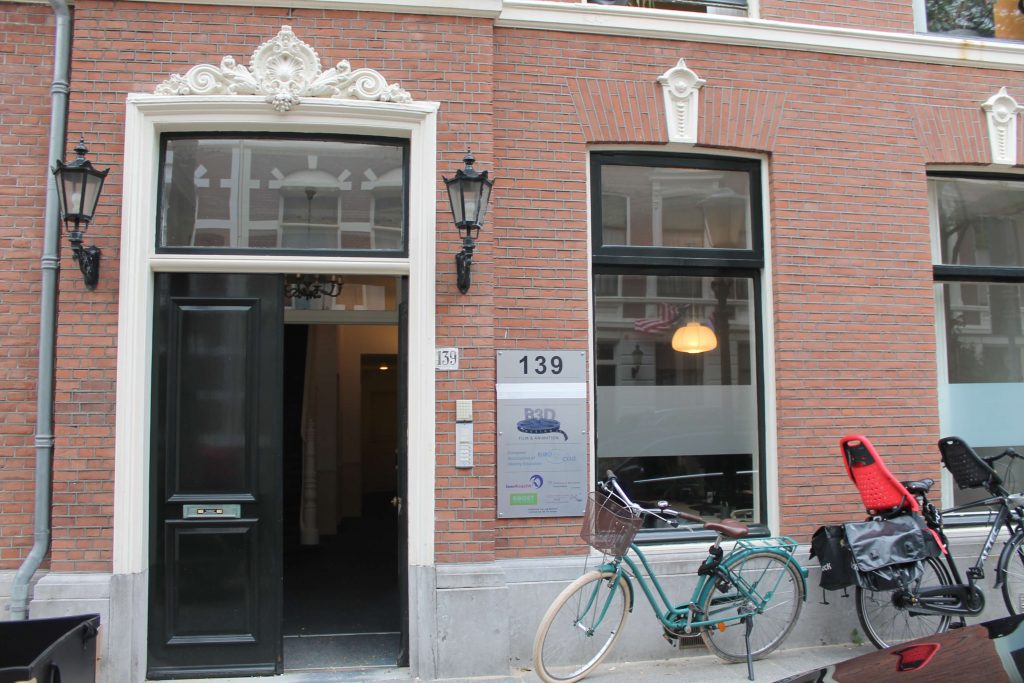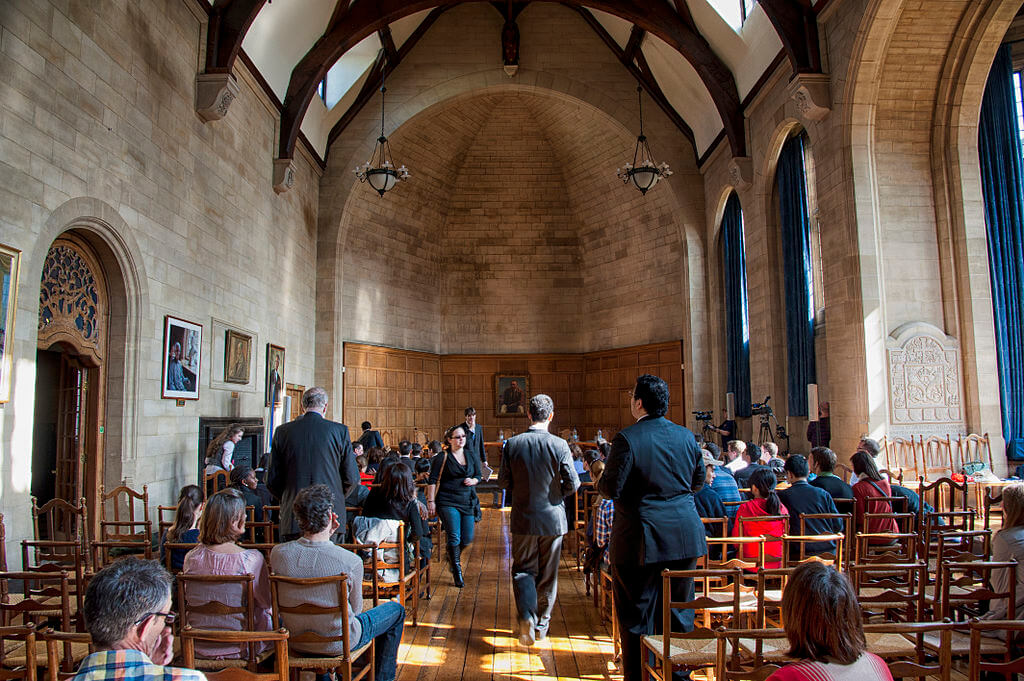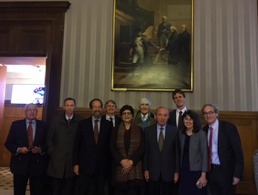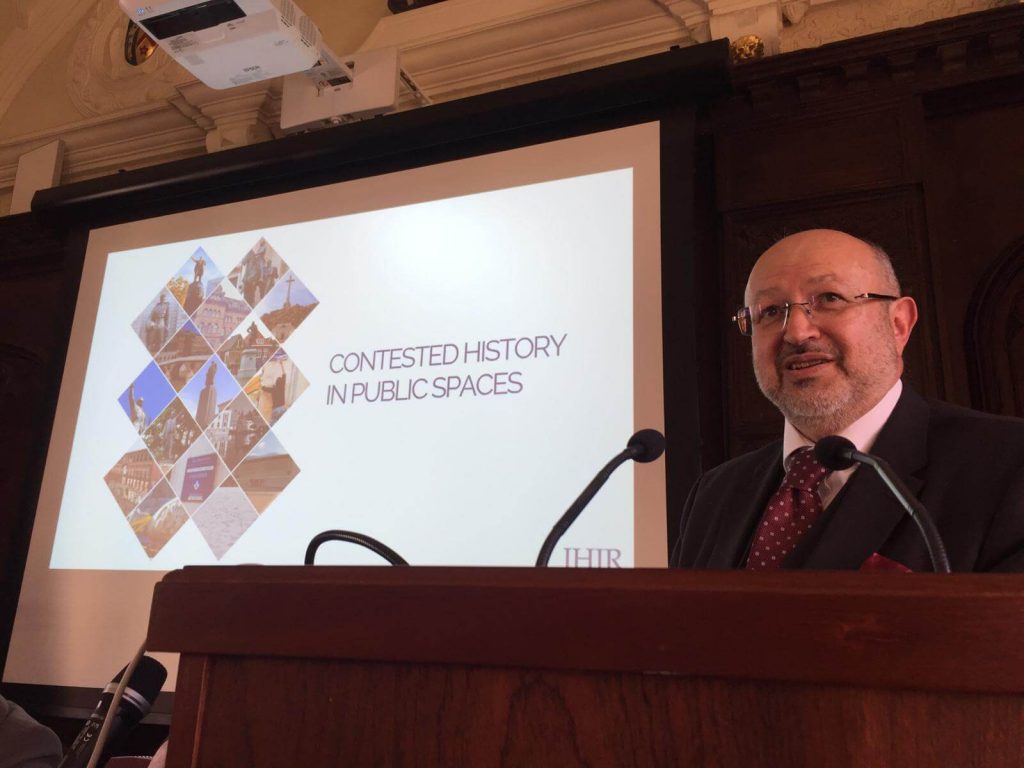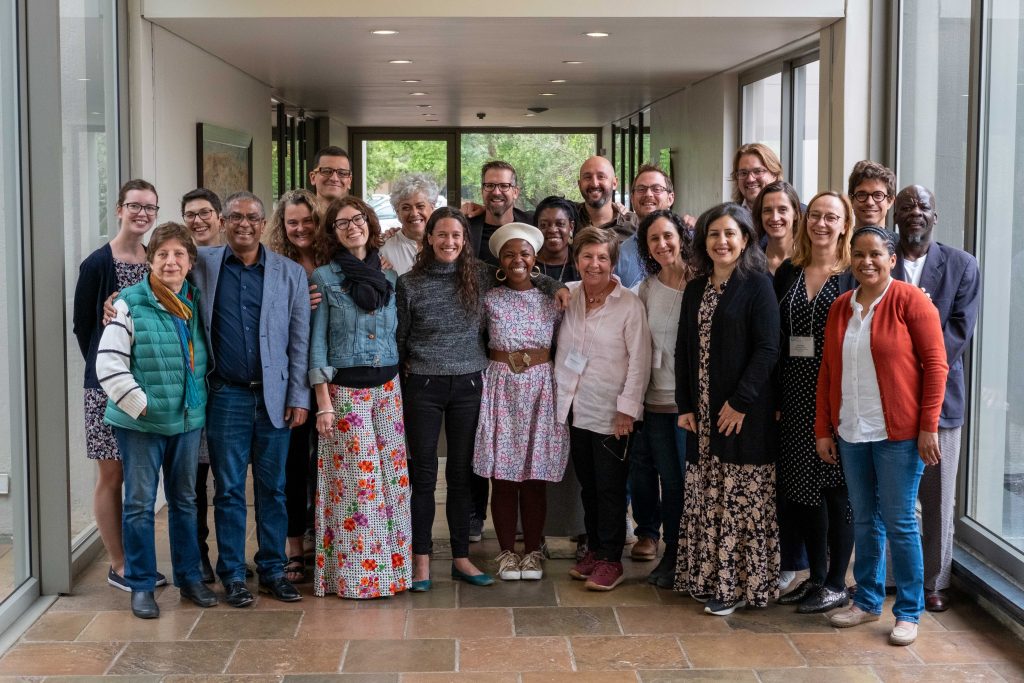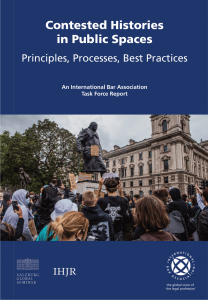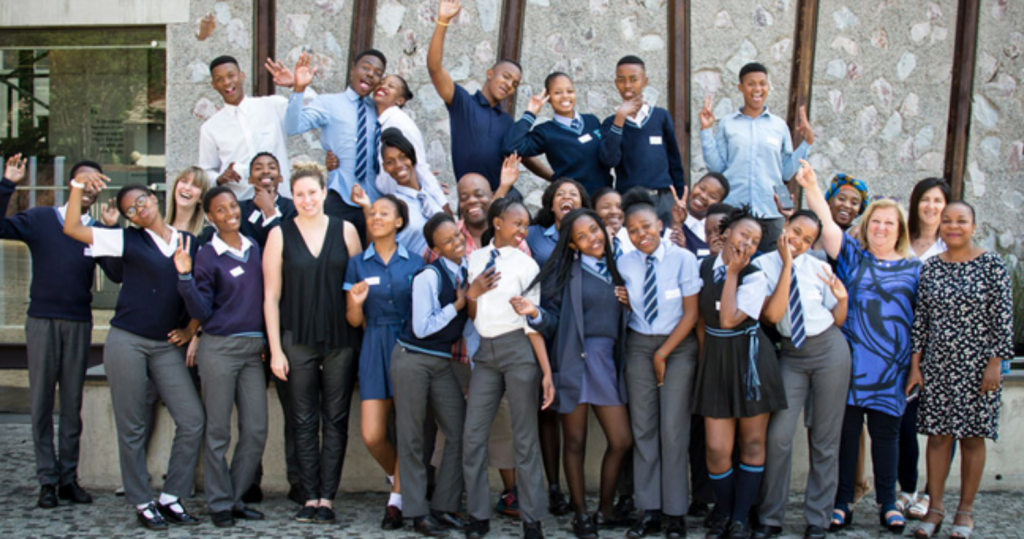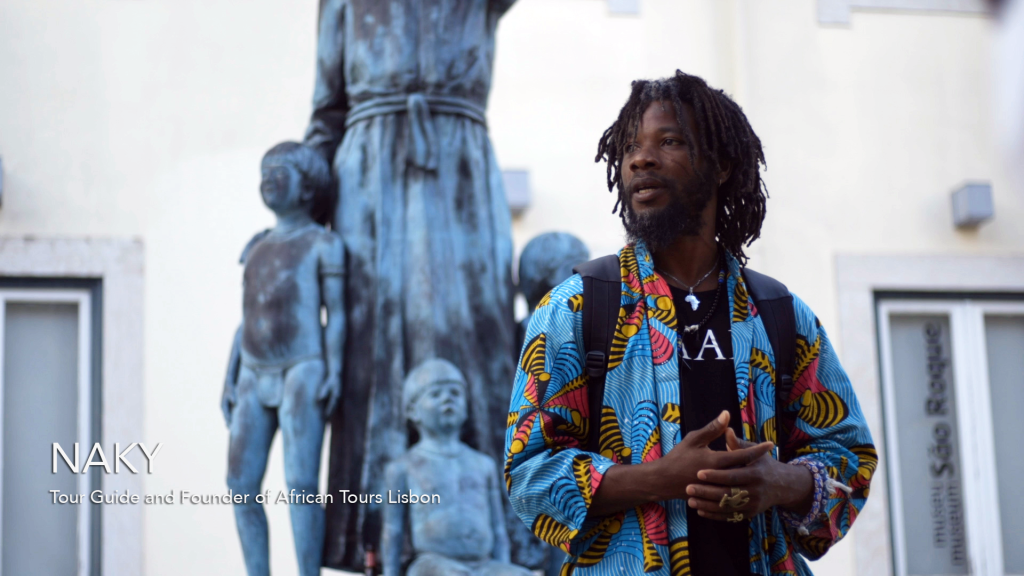The project on Contested Histories in Public Spaces is a co-initiative of EuroClio, the European Association of History Educators, and the Institute for Historical Justice and Reconciliation (IHJR). The research examines contestations over statues, monuments, memorials, street names, buildings and other physical representations of historical legacies in public spaces. The result is an expanding global catalogue of case studies that aims to provide a resource for policy-makers, decision-makers, educators, journalists, scholars and others interested in the subject of contested histories in public spaces. Outputs include policy recommendations, educational materials and published papers. The programme is supported, in part, by the European Union.
Institute for Historical Justice and Reconciliation, founded in 2004 at the Salzburg Global Seminar, becomes independent in 2008 and in 2016 moves headquarters to EuroClio’s Office in The Hague.
In the wake of #RhodesMustFall (RMF) at the University of Cape Town in 2015, and in the midst of RMF at Oxford in Spring 2016, a conversation with the Warden…
Read More
Discussions focused on the need for a neutral platform for various stakeholders addressing contested histories. First case studies researched and template designed for case studies.
Welcomed First Interns from Erasmus University Rotterdam; Prototype for the map designed; First expert meeting with OSCE HCNM; First Contested Histories Symposium at All Souls College, University of Oxford
Thinking About Historical Legacies: Looking for Just Principles and Processes By Charles R. Conn
First 25 cases presented; decision taken to publish a book of ten cases in cooperation with the International Bar Association and Salzburg Global Seminar
With OSCE High Commissioner on National Minorities Lamberto Zannier as keynote speaker
The project and case of Edward Colston in Bristol was presented at Facing History and Ourselves’ Global Summit
Sparked by the death of George Floyd and Black Lives Matter demonstrations, disputes over statues, monuments, street names accelerate – catalogue has more than 200 cases by summer’s end
In partnership with the Memory Studies Association, and support from the EU’s Europe for Citizens programme, the Contested Histories Onsite project launches
The International Bar Association published a volume of ten case studies from around the globe and recommendations by the Task Force for decision-makers, educators and other stakeholders.
The first educational task force meets in Lyon, France to brainstorm how to translate the case studies into Educational Material.
The new project, African Changemakers starts work and Post-Doc Maria Ambrozy begins to work on translating African Case Studies into educational material.
The Digital Archive team for Contested Legacies arrives in Portugal and begins filming and gathering material for the Digital Archive on the Early Atlantic Slave Trade in Portugal.

